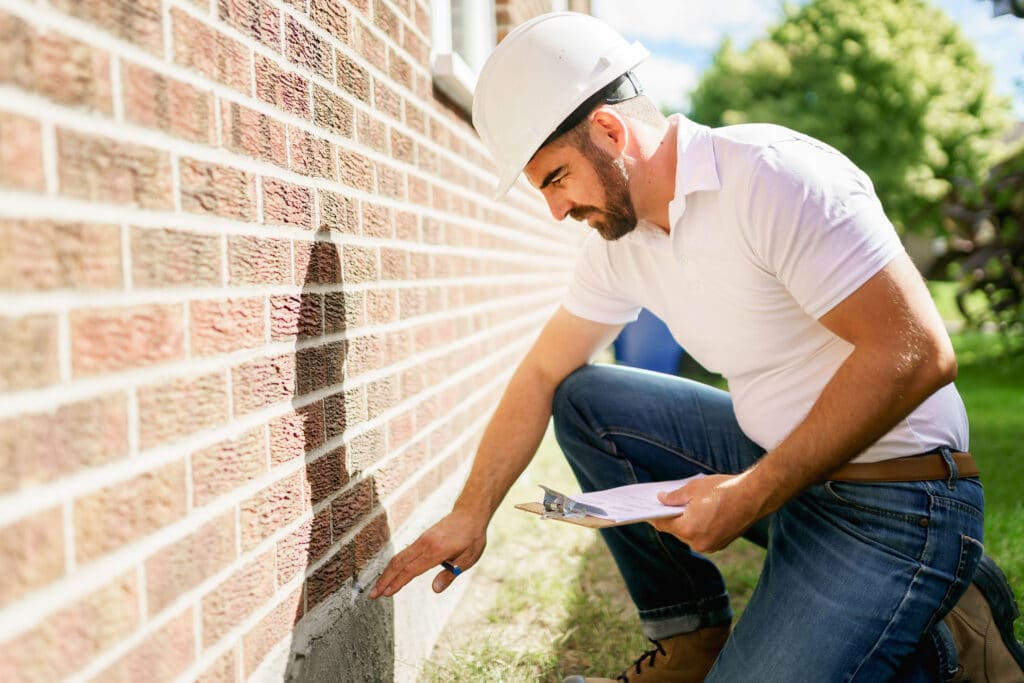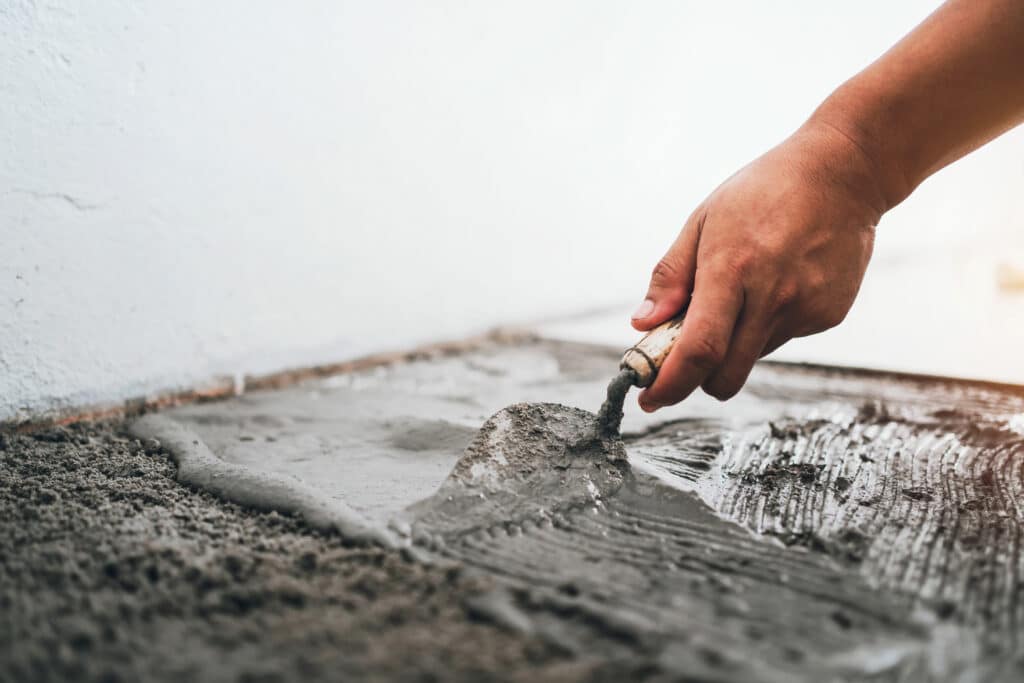Common Causes of Foundation Problems in Huntington
A few factors can lead to foundation issues. Here are the most prevalent ones for Huntington residents:
- Soil composition: Soil with large sand or clay concentrations is highly expansive. In the heavy rainfall Huntington experiences, the soil absorbs moisture like a sponge, then releases it in dry seasons. The constant expansion and contraction stresses nearby foundations, even if the foundations stay dry.
- Topsoil Frost: When temperatures plummet, topsoil freezes rapidly and lower layers can't expand, pushing upper layers to heave and permanently damage infrastructure.
- Aging plumbing: Huntington has its fair share of older homes, with a median building year of 1962. Many of these properties use cast-iron plumbing. When the pipes start eroding, leaking water could reach your foundation and even pool beneath it.
- Standing water: Pooling water around your home can harm your foundation, especially when it gathers in areas your gutter system doesn't reach.
How to Choose the Best Foundation Repair Company
Your home's stability relies on its foundation. It's crucial to choose the top professionals possible. Focus your research on these qualities:
Licensing and Experience
New York's state government doesn't issue contracting licenses, but cities often choose to require them of foundation companies and other builders. For example, New York City requires foundation and excavating contractors to obtain a "Safety Registration Number" with a concrete work endorsement. They also need to register as a general contractor or home improvement contractor. You can also get a sense of a company's experience through the details its representatives share. Inquire about its inspection methods, local code requirements, permit-pulling procedures, and fees.
Another way to assess a company's standing is to check its website. There, you can learn how long it's been in business and its trade accreditations. It might also share knowledge and insights through blog posts, podcasts, or videos.
Customer Reviews
We advise examining the company's Better Business Bureau (BBB) profile to see whether it's accredited and has a positive customer review score. You can check whether other homeowners have shared satisfaction or filed complaints. Pay special attention to what customers say about company warranties. Complaints aren't necessarily a red flag in themselves. Instead, discover how a company handles them. If the management team consistently and proactively resolves issues, it's a good sign. However, if the company lacks accreditation, has more negative reviews, and doesn't communicate well, you should avoid working with it.
Finally, we suggest you search additional sites, like Trustpilot and Google, for more opinions.
Foundation Repair Cost in Huntington
The price of foundation repair can vary substantially based on the extent of the issues and what needs to be fixed. For minor foundation fissures and settling concerns, you may pay as little as $1,800. However, if there is considerable deterioration, the average cost falls at about $2,900. More intricate projects requiring tunneling, helical piers, or major mudjacking could cost $6,900+. Below are the average foundation repair costs for common issues.
| Common Foundation Repair Services | Average Cost |
|---|---|
| Crack Repair | $343 |
| Leak Repair | $2,742 |
| Stabilization | $4,740 |
| Underpinning | $1,314 |
| Waterproofing | $3,027 |
Ready to Get a Quote on Your Foundation Repair Project?
Please enter a valid 5-digit zip code!
Frequently Asked Questions About Foundation Repair in Huntington
How much does foundation repair cost in Huntington?
What's the most popular foundation type in Huntington?
What preventive measures can I take to avoid foundation issues?
- Make sure your home's gutters and downspouts are properly installed and direct water away from your foundation to prevent water accumulation.
- Irrigate the soil around your foundation evenly, especially during dry spells, to prevent expansion and shrinking.
- If possible, grade the soil around your home to angle away from your foundation, promoting water drainage and reducing the risk of foundation issues.
- Inspect your foundation for signs of damage, and repair any issues promptly.
Are there telltale signs I should avoid a particular foundation company?
To share feedback or ask a question about this article, send a note to our Reviews Team at reviewsteam@thisoldhousereviews.com.
More Foundation Resources
National Foundation Repair Ranking Methodology
Sources
U.S. Census Bureau (American Communities Survey)
















